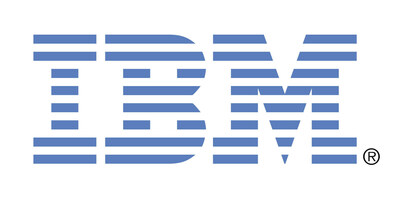IBM Study: Vehicles Believed to be Software Defined and AI Powered by 2035
Rhea-AI Summary
IBM's latest 'Automotive 2035' study reveals significant industry transitions, based on 1,230 executive interviews across 9 countries. Key findings show that 80% of new cars will have electrified powertrains by 2035, while 74% of executives believe vehicles will be software-defined and AI-powered. The study highlights a major shift from one-time sales to recurring revenue models through digital services.
R&D budgets for software and digital developments are expected to nearly triple from 21% to 58% by 2035. However, challenges persist, with 77% of executives reporting a lack of software development tools and 74% citing difficulties in transitioning from mechanical to software-driven development. The industry faces technical challenges in separating software and hardware layers while aiming to deliver personalized user experiences.
Positive
- 80% of new cars projected to have electrified powertrains by 2035
- R&D budget allocation for software/digital development expected to increase from 21% to 58%
- Transition to recurring revenue model through digital services and subscriptions
- 75% of respondents confirm software-defined experience as core brand value
Negative
- 77% of executives report lack of software development tools and methodologies
- 74% struggle with transition from mechanical to software-driven development
- Technical challenges in separating software and hardware layers
- Current vehicle architecture deemed unsustainable for software-defined vehicles
News Market Reaction
On the day this news was published, IBM gained 0.93%, reflecting a mild positive market reaction.
Data tracked by StockTitan Argus on the day of publication.
The study highlights that over the next decade,
74% of executives surveyed believe that by 2035 vehicles will be software defined and AI powered75% of respondents say the software-defined experience will be the core of the brand value- The auto industry is trying to shift its business model from one-time car sales to a recurring revenue model for digital services and products
The study is a data-led analysis of automotive and mobility industries developments over the next 10 years and is based on 1230 interviews with senior executives from automotive OEMs, suppliers, and surrounding industries across 9 countries.
"The shift to software-defined vehicles (SDVs) was cited by the majority of industry executives as the key to future brand developments," said Jeff Schlageter, Automotive Industry General Manager IBM. "It is indicated that vehicle value may no longer be limited to initial features and functionality—it would be earned over the life of the vehicle by continuously providing superior customer experiences with new applications and subscription-based services for drivers."
The study highlights that the industry is preparing to offer deeper, more personalized user experiences that are enabled by digital capabilities. Currently just
The research also reveals gridlock at the heart of SDV developments. The traditional approach to vehicle architecture—where software for a single domain (such as brakes) is delivered separately from another domain (such as airbags) through individual electronic control units (ECUs)—is no longer sustainable for the SDV era.
To reach a future where cars are truly digital products, automakers need a sweeping overhaul of current electrical and software architectures. The technical challenge of separating software and hardware layer is seen as the top challenge.
Jeff Schlageter added, "By harnessing the power of cloud combined with AI, automakers can explore new ideas, test different software configurations, and gather valuable insights to inform the development of innovative SDV features. Using AI to analyze vast volumes of data, identify patterns, and make predictions, automakers can accelerate SDV enhancements and create personalized experiences for customers."
The scope and scale of issues around the development of SDVs are further discussed in depth in a LinkedIn Live broadcast today, jointly hosted by IBM and General Motors in
IBM's 'Automotive 2035' study represents the 4th edition of the automotive industry longitudinal study which started with 'Automotive 2020' published in August 2008. The full report can be found here.
Study Methodology
The IBM Institute for Business Value (IBM IBV), in cooperation with Oxford Economics, surveyed 1,230 C-level automotive executives in nine countries in Q3 2024.
About IBM
IBM is a leading provider of global hybrid cloud and AI, and consulting expertise. We help clients in more than 175 countries capitalize on insights from their data, streamline business processes, reduce costs and gain the competitive edge in their industries. More than 4,000 government and corporate entities in critical infrastructure areas such as financial services, telecommunications and healthcare rely on IBM's hybrid cloud platform and Red Hat OpenShift to affect their digital transformations quickly, efficiently and securely. IBM's breakthrough innovations in AI, quantum computing, industry-specific cloud solutions and consulting deliver open and flexible options to our clients. All of this is backed by IBM's long-standing commitment to trust, transparency, responsibility, inclusivity and service. Visit www.ibm.com for more information.
Media Contact
Ken Saunders
IBM Global External Relations Manufacturing & Energy Industries
saundken@uk.ibm.com
+44 7887 830 036
![]() View original content to download multimedia:https://www.prnewswire.com/news-releases/ibm-study-vehicles-believed-to-be-software-defined-and-ai-powered-by-2035-302329231.html
View original content to download multimedia:https://www.prnewswire.com/news-releases/ibm-study-vehicles-believed-to-be-software-defined-and-ai-powered-by-2035-302329231.html
SOURCE IBM








